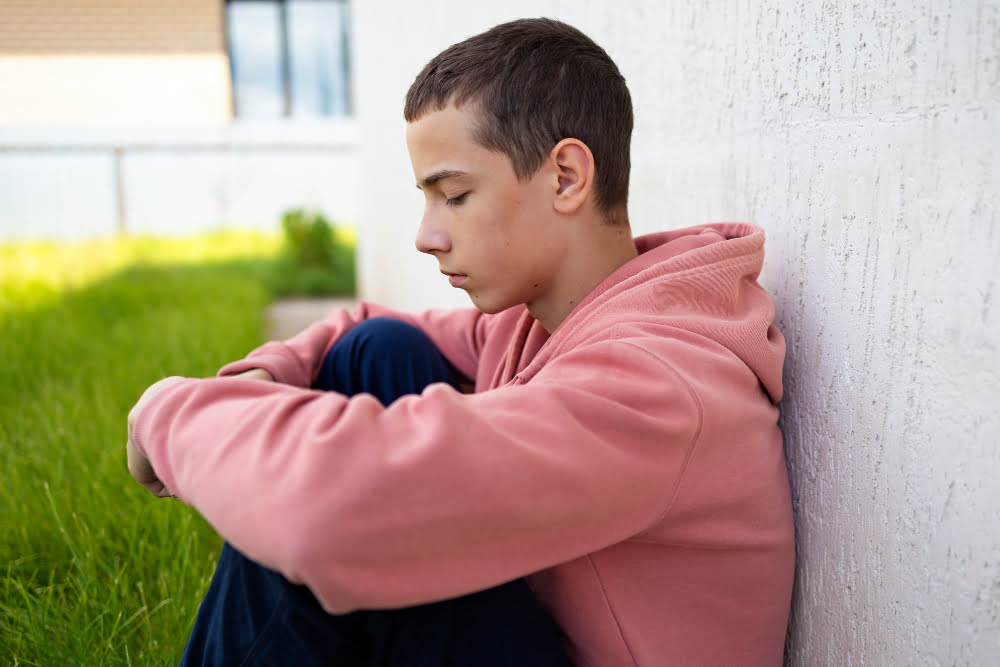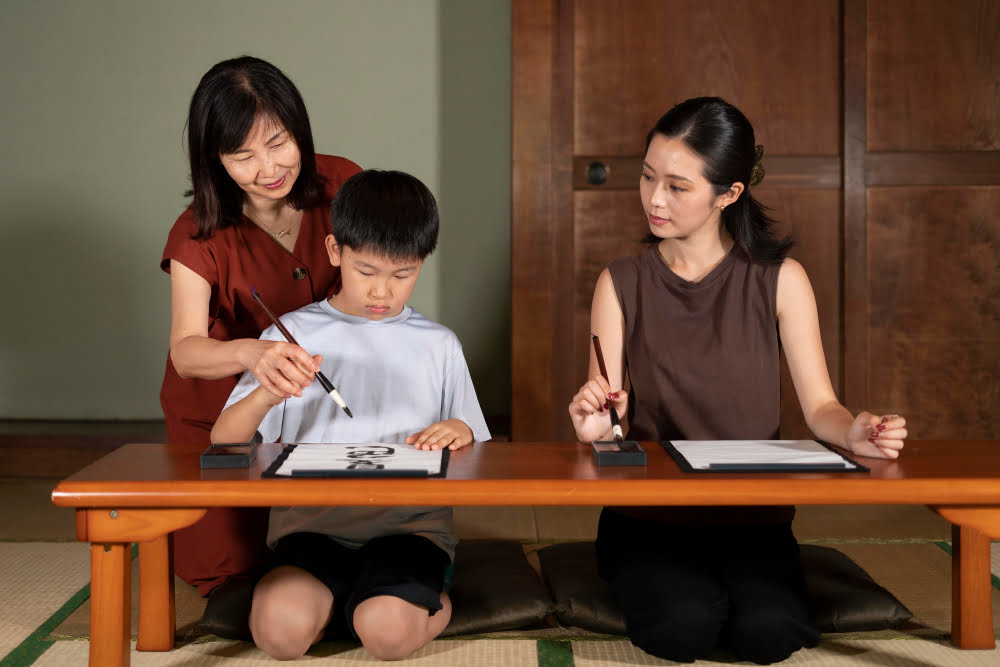Parenting styles play a pivotal role in shaping the emotional, social and cognitive development of children.
Parenting styles have a profound influence on child development. They shape the way children perceive the world, interact with it, and establish their own identity.
A child’s behavioral patterns, emotional growth, social skills, and academic performance can all be traced back to the parenting style they were subjected to during their formative years.
This article will delve into the four main types of parenting styles – authoritative, authoritarian, permissive, and uninvolved – and how each one impacts a child’s development.
Whether you’re a new parent or just looking to understand your child better, this comprehensive guide will provide valuable insights into the effects of different parenting approaches on child development.
Key takeaways:
- Parenting styles shape emotional, social, and cognitive development.
- Authoritative parenting promotes academic success, self-reliance, and positive mental health.
- Authoritarian parenting can lead to obedience but may also result in low self-esteem and aggression.
- Permissive parenting may hinder self-regulation and academic performance.
- Neglectful parenting can lead to feelings of neglect, low self-esteem, and academic difficulties.
Here You Will Learn:
Understanding Parenting Styles

The impact a parenting style has on a child cannot be underestimated. It serves as the framework through which a child learns to navigate the world, by guiding their reactions, shaping their values, and influencing their conduct.
Each parenting style has its own unique set of characteristics and mannerisms, which sets the tone for the parent-child relationship. To comprehend the full implications of these relationships, it is important to understand the predominant parenting styles and the unique attributes associated with each one.
Moreover, no style exists in isolation, and many parents often find themselves using a combination of styles depending on the situation at hand.
The Four Parenting Styles

Each parenting style has distinct characteristics and strategies. The authoritative style is typified by high responsiveness and high demands. Parents using this style set clear rules, but they also use warmth and nurture to guide their children.
In contrast, the authoritarian style features high demands with low responsiveness. Here, rules are absolute and communication is mostly one-way.
Conversely, permissive parents offer high responsiveness but few demands, often avoiding setting boundaries or rules.
Lastly, the uninvolved style is relatively hands-off, with low demands and low responsiveness, with parents detached from their children’s needs or experiences. Such parents might be neglectful or simply uninformed about parenting’s fundamental aspects.
Authoritarian Parenting

Characterized by high expectations and strict rules, authoritarian parents often demand obedience and conformity without room for dialogue. They value discipline over fun, and mistakes are usually met with punishment. The primary goal is to enforce order and control.
This style of parenting can have various implications for a child’s development. Initially, children subjected to authoritarian parenting might observe better academic performance due to disciplined study habits. However, the lack of freedom and creative expression can lead to low self-esteem, development of fear instead of understanding, and aggressive or rebellious behavior in the long run. They might also end up being less resourceful because they are accustomed to strictly following instructions. Despite seeming obedient, these children might not necessarily develop an understanding of right and wrong, as their moral judgment is often overshadowed by fear of consequence.
Consequences of Authoritarian Parenting

Children raised by authoritarian parents may exhibit a range of outcomes due to the strict, often rigid approach. They commonly demonstrate obedience and proficiency at following rules, which can translate to good performance in structured environments like school. However, they may also develop lower self-esteem, as their individuality and autonomy are frequently suppressed.
Creativity and self-initiative often suffer, as the fear of punishment discourages risk-taking and experimentation. Furthermore, children may also struggle with social skills due to limited interaction opportunities. Some may develop aggressive or defiant behavior as a response to the high-pressure environment.
Finally, these children may face challenges in expressing their emotions appropriately, as their feelings are typically overlooked or invalidated, leading to potential emotional instability in their later years. It’s worth noting that the presence and intensity of these consequences can vary greatly from individual to individual.
Authoritative Parenting

Balancing strict rules with warmth and affection, this parenting style is often linked with the most positive child development outcomes. Guidelines and expectations are clear, but there’s a deeply embedded understanding of a child’s thoughts and feelings.
Parents follow this approach encourage independence but also maintain a strong family hierarchy with open communication lines.
Imparting discipline isn’t about punishment or control but understanding the rationale, enabling children to internalize good behavior. They learn to exercise self-discipline and responsibility, ultimately boosting their confidence.
Therefore, these children tend to excel academically, are self-reliant, and exhibit lower levels of anxiety and depression.
Despite bringing universally positive outcomes, it’s crucial to note that context matters, and the effectiveness could vary based on individual differences and cultural norms.
Impact of Authoritative Parenting

Children raised in an authoritative environment are generally happy, capable, and successful. This parenting style encourages independence but also establishes clear boundaries.
Children feel heard and valued due to the open lines of communication. Research has shown that these children often excel academically, are social and competent, and less likely to engage in risky behavior. They display good self-confidence, adequate social skills, and show lower levels of depression and anxiety.
Furthermore, it encourages a healthy, respectful, and nurturing relationship between the parent and the child. This balance of nurturing communication and firm boundaries fosters an environment for optimal psychological growth.
Permissive Parenting

Typified by a “kids will be kids” mentality, permissive parents tend to set few rules or standards of behavior. These parents often act more like friends than authority figures, showing an abundance of acceptance and affirmation, while providing minimal discipline or structure.
While this can create an emotionally rich environment, the lack of boundaries can lead to potential problems. Children raised in such an environment may struggle with self-regulation and control due to the absence of firm guidance. They may develop issues with authority and fail to understand the necessary boundaries in social interactions.
Their academic performance may also be affected. Studies show a propensity for these children to perform less well in school, potentially due to the absence of imposed guidelines for homework and study times.
This parenting style, while nurturing on the surface, might hinder the development of critical life skills in children, including responsibility, self-discipline, and long-term decision making. It is therefore essential for parents to foster a balance, implementing some rules and structure whilst still encouraging individuality and freedom.
Effects of Permissive Parenting

Permissive parents often give children much freedom with limited regulatory boundaries. Unlike their authoritative counterparts, they believe in letting the child learn from their own mistakes and regulate themselves. However, this leniency may lead to detrimental effects.
Children under permissive parenting may grow to be impulsive due to the lack of discipline and boundaries. It may also foster dependence, as they are used to having their demands promptly fulfilled without needing to solve problems themselves. These children may also show more aggressive behavior and may struggle with self-discipline.
Academically, they may face difficulties, as permissive parenting often lacks a structure conducive to the development of responsible study habits. Socially, they may struggle as their high expectation of getting their way may not align with social norms or peer interactions.
Keep in mind that while permissive parenting nurtures a strong, positive parent-child relationship, setting boundaries and providing guidance is essential for balanced child development.
Role of Neglectful Parenting

Often considered the most detrimental, neglectful parenting—also known as uninvolved parenting—is characterized by a marked lack of responsiveness and warmth towards the child. In this style, parents show little to no emotional involvement, leaving their children to fend for themselves.
A common consequence is the development of feelings of neglect and low self-esteem in the child. Fundamentally, the absence of emotional support hinders the development of secure attachment, leading to potential social and emotional difficulties as the child grows older.
Neglectful parenting can also adversely affect a child’s academic performance. With minimal guidance and support from their uninvolved parents, these children may struggle to navigate educational challenges effectively. In severe cases, it might also lead to development delays due to unmet basic needs.
The damage inflicted by this parenting style can be far-reaching; however, professional help and treatment can help mitigate these effects and foster healthier relationships and development.
Parenting Styles and Emotional Development

Understanding and managing emotions are key life skills necessary for a child’s overall wellness and success. Parenting styles, notably, play a significant part in fostering these skills. Authoritative parenting, characterized by support and guidance, is linked with emotional intelligence and empathy in children. These parents give their children the tools to express and understand their own emotions, promoting self-regulation, resilience, and positive peer relations.
On the other hand, research shows that children raised by permissive parents—who allow excessive freedom without offering much guidance—may struggle with self-regulation of emotions, leading to indulgence in risky behaviors.
Children of authoritarian parents may suppress emotions due to fear, leading to poor emotional awareness and understanding. Uninvolved parenting, marked by neglect and disregard, could lead to feelings of insecurity and low self-esteem in children, often struggling to understand and manage their emotions.
In summary, the way parents interact with their children significantly affects how children learn to handle emotions, underlining the importance of adopting a balanced parenting style.
Impact of Parenting Style On Social Skills

Children nurtured through the authoritative approach often exhibit better social competence due to the independence and autonomy fostered by their parents. They are more likely to engage openly in social situations, displaying a balanced mix of assertiveness and cooperation. They tend to exhibit empathy, self-control and proficient communication skills.
Conversely, children of authoritarian parents may suffer impaired social skills. They often struggle with self-esteem, leading to shyness, avoidance or aggressive behavior when interacting with their peers. Due to living in a controlled environment, they may also lack the skills to assertively express their thoughts or desires.
Permissive parenting can result in children who are poor at handling peer pressure due to inadequate boundaries and rules at home. Such children may become overly dependent on friends for validation.
Lastly, children of neglectful parents often display antisocial behavior. Deprived of essential parental guidance, these children wrestle with forming and maintaining healthy relationships with their peers due to feelings of distrust and insecurity. Their lack of experience with constructive communication often leads to issues like loneliness, feelings of rejection, and even bullying behaviors.
The Role of Culture in Parenting Styles

Culture significantly impacts the way parents approach raising their children. In collectivist societies, for instance, authoritarian and authoritative styles are more prevalent, emphasizing obedience and respect for elders. Conversely, individualistic cultures may lean towards a permissive style, promoting independence and individualism.
The value systems, traditions, and societal norms in different cultures often dictate what is considered ‘good’ or ‘bad’ parenting. For example, in some cultures, strict discipline and control may be seen as essential aspects of child-rearing, while others might prioritize emotional warmth and understanding.
Immigrant parents may also face the challenge of reconciling their cultural parenting attitudes with those of their host country. This cultural clash can lead to a unique blend of parenting styles. Understanding the effect of cultural factors can lead to a more nuanced view of parenting and its impact on child development.
FAQ
How parenting styles can affect children’s development?
Parenting styles, including authoritarian, permissive, and uninvolved, significantly influence a child’s academic motivation, achievement, and mental disease susceptibility, potentially leading to anxiety, depression, and other mental health issues.
Which parenting style is the most detrimental damaging for a child’s development?
The most detrimental parenting style for a child’s development is neglectful parenting, as it can lead to low self-esteem, reduced self-confidence, lack of self-control, and impaired social skills.
What does parenting style impact?
Parenting style impacts self-esteem, physical health, academic performance, attachment style, social skills, and the likelihood of mental illness.
How negative parenting styles can affect your child?
Negative parenting styles can lead to mental health issues in children, including internalizing problems such as depression, anxiety, and personality disorders, as well as externalizing problems like aggression and violence.
How does the permissive parenting style influence a child’s social skills?
The permissive parenting style, characterized by low constraints and high warmth, often results in children struggling with self-regulation and social skills due to a lack of structured guidance.
What role does authoritative parenting play in shaping a child’s academic success?
Authoritative parenting, characterized by a balanced approach of warmth, encouragement, and clear structure, plays a substantial role in shaping a child’s academic success as it fosters intrinsic motivation, self-discipline, and social skills, all crucial for school performance.
Can the consequences of neglectful parenting be mitigated in later developmental stages?
Yes, the consequences of neglectful parenting can be mitigated in later developmental stages through intensive therapeutic interventions, positive interpersonal relationships, and a supportive nurturing environment.